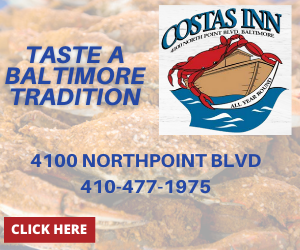a $65 million deal without anyone in the baseball operations even remotely involved in the process or discussion.
Thrift defended his position in 2001 with The Fort Lauderdale Sun-Sentinel: “We’re very responsible people,” he said in his Virginia Appalachian drawl during spring training from his dumpy office at Fort Lauderdale Stadium. “I take this very serious. I may not be as smart as some of these other folks, but I know one thing: I’ll outwork them all.”
Thrift loved to brag that he gave Jim Leyland and Jim Bowden their starts in baseball and that he “discovered” Al Oliver, Rickey Henderson and Barry Bonds. Of course, at 72 and having spent a lifetime in baseball, Thrift, who penned the book “The World According to Syd” in 1990, bristled and defended his track record.
“I’ve been very productive in my life in baseball,” he told the newspaper. “I’m not going to be taken as some amateur or semipro trying to build a resume to get a job somewhere else, like a lot of my colleagues have done over the course of time. We really have had a plan of where we’re going, how we’re going to get there, what we’re going to do. And so far we’re very pleased with the progress that we’ve made with this team.”
Columnist Thomas Boswell of The Washington Post who had covered the Orioles for almost 25 years from the nation’s capital not only didn’t see progress, he saw shades of the pathetic Washington Senators’ teams of his childhood in the 1950s and 1960s, who were amongst the worst teams in the sport annually for decades – a punch line for bad baseball and poor decisions.
Now, thanks largely to owner Peter Angelos and his hand-picked “baseball people,” we have an Orioles team (currently in a brief sub-.500 slump over its last 520 games) that’s worthy of the memorable creations of Bob Short or Calvin Griffith. Angelos deserves more credit. Short lacked money and Griffith wits. Angelos has both, and has overcome them.
In Syd Thrift, Angelos may’ve identified the perfect Nat general manager, a man who is able to gaze deep into a rival’s farm system and pluck out the one prospect with a suspicious birth certificate or an as-yet-undetected elbow malady.
In Baltimore these days, you can see veterans past their prime, journeymen who never had a prime and rookies who dream of a prime. All are bonded together out of need – a band of baseball brothers. Like generations of Nats, these Orioles are all in fervent pursuit of a goal that’s always just beyond their grasp: mediocrity. Oh, if we could just get to .500 – the promised land.
In the Nats’ last 25 years in Washington, which were my first 25, the Senators finished last 11 times, next-to-last five times and only had two winning seasons. Their honorable but doomed pursuit of being average was what defined a Nat. You could have a few good players and even some team spirit. You hire and fire managers. But, somehow, the Natness of it all carried the day. Just as Orioleness seems to have
become entrenched.
The “new” Oriole Way was wayward and lost after a fourth straight year of also-ran status. If it weren’t for the low payroll, still-seemingly-in-expansion mode Tampa Bay Devil Rays, the team would’ve been in last place in the AL East. At the close of the 2001 season, Thrift and Angelos conferred and agreed to lower the payroll even more entering





























